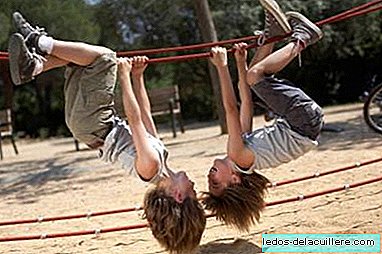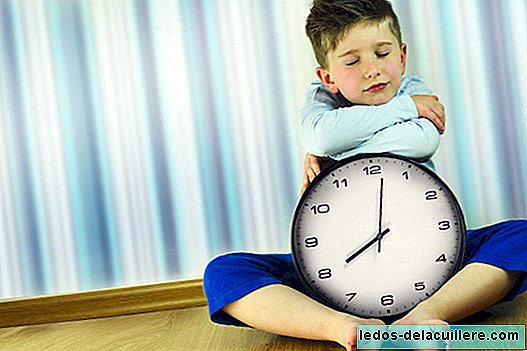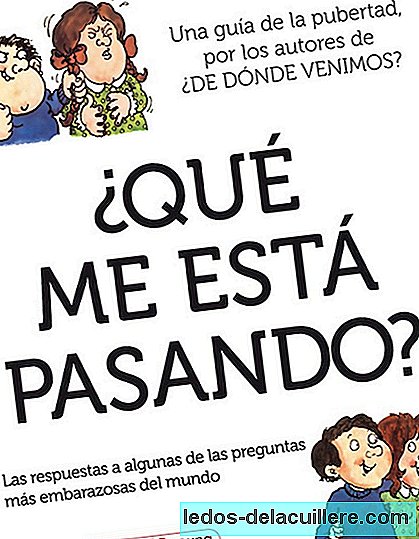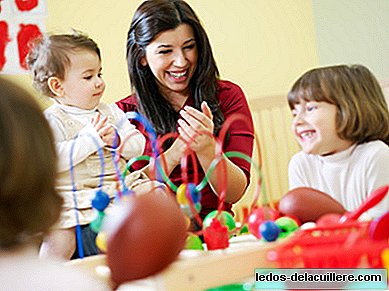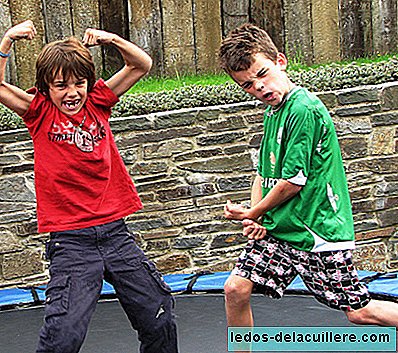If they told you that changing neighborhood or city your children will get better academic results and have a better futureWith better professional opportunities and a higher salary, would you do it? I think the answer is yes for any family, another question is that it is feasible to carry out this move in search of a better future.
A study published in the United States shows us a reality that, I am convinced of, can be extrapolated to our surroundings and that of many countries, to our cities, to our neighborhoods. Places where there are some schools and institutes with more "prestige" than others, depending on the neighborhood in which they are located.
Highly requested schools and others you go to "because it's your turn" or don't even think you could change. Schools whose academic results stand out against others with lower and even "mediocre" results. Not to mention security issues that are compromised in some conflict centers in certain disadvantaged environments.
If you could choose, where would you take your children? Wouldn't you change your neighborhood and your school for another one with better expectations? But how do we decide where to live? Do we always have a choice?
These are some of the questions that arise when reading the study data. Because, although it is true that it depends on where we live the schools will have certain characteristics and the academic results are related (not forgetting the role of the family in it, as we will see), it is also true that the decision to live in one or Another place is not always possible.
It is even difficult to change house, city neighborhood (or make that decision), and I believe that the experience of our readers can confirm it, when there are no economic problems, especially if we are satisfied with our environment.
Obviously, in the cases of the most disadvantaged neighborhoods, most of the families will not even be able to consider a change of residence. But there are those who do (or did a few decades ago) and the results are appreciated: children who moved in the 70s to a "good neighborhood" from different cities in the United States, they are now adults who have a much better chance of having a better income than those who stayed in their neighborhood.

The Equal Opportunities Project
To know which are the best and the worst neighborhoods to live in the great cities of the United States, we can consult the article published in the New York Times entitled "The best and worst places to grow: how your area compares. It is based on a large study history prepared by economists Raj Chetty and Emmanuel Saez, Equality of opportunity.
The question at the base of this Project is: How can we improve economic opportunities for low-income children? In order to face an equal opportunity that evidently the results show that it does not exist.
In the current phase of the study at the national level, they focus on seeing how families that moved from the neighborhood improve (or not) improve their social status. The results, with data from almost five million families, indicate that with each year of exposure to a better environment it improves the chances of success of a child.
The differences are notable in many cities. Let's take New York as an example. In this city, if a child of a poor family grew up in the Bronx neighborhood, at the age of 26 he will earn about $ 3200 less than the average in a "normal place." On the other hand, if you spent your childhood in the Bergen neighborhood, you will earn about 3700 dollars more.
My question at this point is: are the current mobility conditions the same as four decades ago? That is to say, is there not a larger social gap that prevents a greater change of place of residence? Could such a large number of families who change neighborhoods be found today? How many "poor families" currently live in favored neighborhoods?

The origins and consequences of inequality
Another crucial question on this issue is: why do these inequalities occur? What is different in those neighborhoods, in those schools? And the underlying issue leads us to the economic inequalities of each environment.
Although education seeks universality and equal opportunities for all students, it is clear that the resources are not the same for everyone and from one end of the city to the other, we can find students and families with very different socioeconomic characteristics.
In the Valencian Community, for example, in some neighborhoods there are centers classified as CAES centers, that is, "Singular educational action centers", which in my opinion is a euphemism not to mention the clear risk of social exclusion of students and where teaching work is really difficult.
Unfortunately, poverty is associated with lower school performance, before going to school, children usually receive less stimuli, grow up in a worse environment, learn fewer words and develop with a smaller brain ...
In general, if there are economic problems in the family, if you have to work too much, not much attention is given to children and when the age of going to school comes they are not parents involved, there are greater problems of school absenteeism, poorly fed children that they cannot perform properly ...
In short, there is an accumulation of circumstances that explain these inequalities in academic results and in certain environments from which it is not easy to escape. The professor and economist Joseph Stiglitz is not right when he says that "Access to a good education is increasingly dependent on the income, education and wealth of one's parents." Something true both at school and university level, according to analysts.
In this sense, I think that in the villages the differences are diluted, if we only have one or two schools, if there are no rich and poor neighborhoods, in those schools there will be students and families of all kinds and the academic level will be more balanced, there will be a kind of "compensation."
Returning to the United States study, we could conclude that the "land of opportunities" is no longer so much. Better talk about "neighborhoods of opportunities", because there is a substantial variation in the income of children who grew up in one place or another, as we have seen. But there are also "societies" in which it is difficult to get out of poverty.
In this sense, it should be noted that the weakening of public funding in the educational field undermines equal opportunities, something that, unfortunately, we see every day in terms of cuts in education in Spain (and health ...).
In short, the study of the Equal Opportunities Project shows us an unfair reality in which, in general, the most disadvantaged families are bound to move in a vicious circle that will lead them to a worse future and in which the rich or middle classes have it easier to get ahead. Anyone would change neighborhood to give their children a better future. But not everyone can choose.




